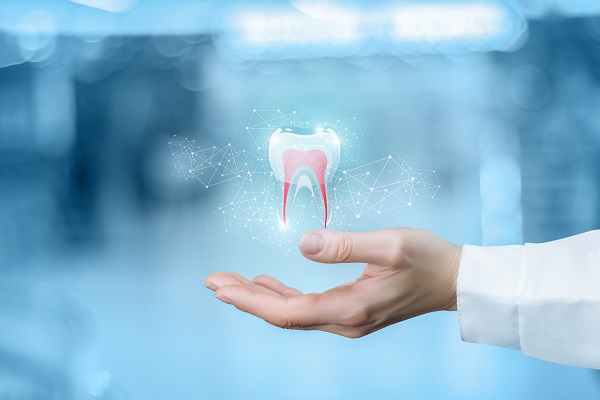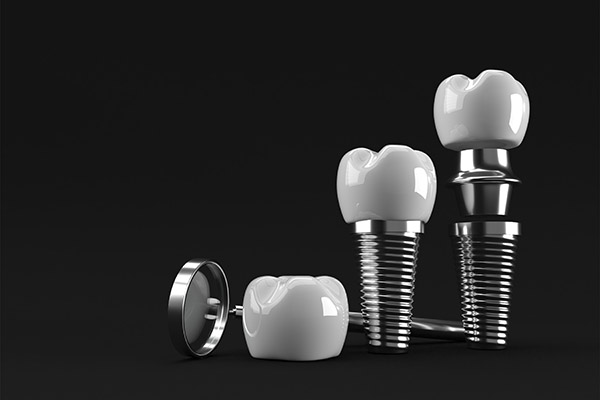Ask a Family Dentist: Is Chewing Ice Bad?

If you are one of the people who habitually chew on ice, you might want to hear what a family dentist has to say about that habit. Teeth are the strongest part of your body, but they were not designed to bite down on hard things like ice or fingernails.
A family dentist explains why chewing ice is bad
According to a family dentist, chewing down on ice can lead to teeth enamel becoming damaged. Damaged enamel leaves teeth more vulnerable to tooth decay since the enamel serves as a protective barrier. Once it is gone, the inner layers on teeth, which are not as durable, become exposed to the acids and oral bacteria in the mouth.
As a result, cavities will begin to form on teeth surfaces and they will get bigger until they are treated with fillings or lead to severe damage to the tooth. Enamel that has been worn down by biting on hard things habitually also leads to increased tooth sensitivity.
Why people chew on ice
Some people eat ice as a way to get relief from the symptoms of dry mouth. Others do it as a way to cool down on a hot day. Health conditions that can lead to a person craving ice include:
- Pagophagia: This condition might be caused by emotional issues or nutritional deficiencies. It leads to the person craving ice. These cravings can last for months at a time. It is a condition that can affect children and adults
- Iron deficiency: There has been some research that indicates iron deficiency might lead to craving ice. The reasons why this occurs are yet to be determined. People who are iron deficient usually have lower levels of healthy red blood cells. These cells play a very important role transporting oxygen throughout the body. Symptoms of iron deficiency include fatigue, pale skin, swollen tongue, chest pain, cold hands and feet, breathlessness and feeling lightheaded
- Emotional problems: Certain emotional issues like being stressed out can cause some people to crave ice. Obsessive-compulsive disorder is another health condition that can lead to compulsive behaviors like chewing on ice
- Poor nutrition: Poor nutrition is another reason why some people have ice cravings. For example, some people who chew on ice add flavored syrups to them. For such people, their ice cravings are really sugar cravings
- Dehydration: Being dehydrated can also lead to chewing on ice. The habit has a cooling effect and it makes a dry mouth feel better. It can also help to lower a person's body temperature on a hot day. Symptoms of dehydration include dark-colored urine, thirst and feeling dizzy in more severe cases
Get past your bad habit
A dentist can help you to figure out why you have cravings to chew on ice and perform treatments to fix any of your teeth that have already been damaged. Treatments like composite resins and crowns can be used to restore damaged enamel. Call or visit our Carmel clinic to learn more about how ice damages your teeth.
Request an appointment here: https://www.carmelsmilesdentist.com or call Smiles in the Village Dentistry at (317) 218-7985 for an appointment in our Carmel office.
Check out what others are saying about our services on Yelp: Read our Yelp reviews.
Related Posts
Professional dental cleaning are integral for keeping your mouth healthy. They remove plaque and tartar (hardened plaque) that regular brushing and flossing cannot, leaving your teeth and gums refreshed. Maintaining healthy habits that keep your smile bright and strong is essential to make the most of a dental cleaning. Caring for your teeth properly after…
If you are considering implant dentistry or are about to go through the process and want to learn more about it, it is helpful to first understand the basics. Here, we will discuss the various parts that make up an implant dentistry restoration and highlight how they all work together to complete the restoration.An implant…
If you have opted for implant dentistry to replace your missing teeth, you will need to decide on fixed or removable restorations. Read on to learn about implant dentistry and your options. Removable implant-supported restorations can be snapped on and off the abutments anytime there is a need to take off. In contrast, fixed restorations…
Dentures have long provided an effective solution for patients with missing teeth, offering improved oral function and facial appearance. Today, advances in digital dentistry are transforming the way dentures are designed, fabricated, and fitted—offering greater precision, comfort, and natural aesthetics. This innovative approach represents a new era in restorative care, helping patients enjoy a confident…


